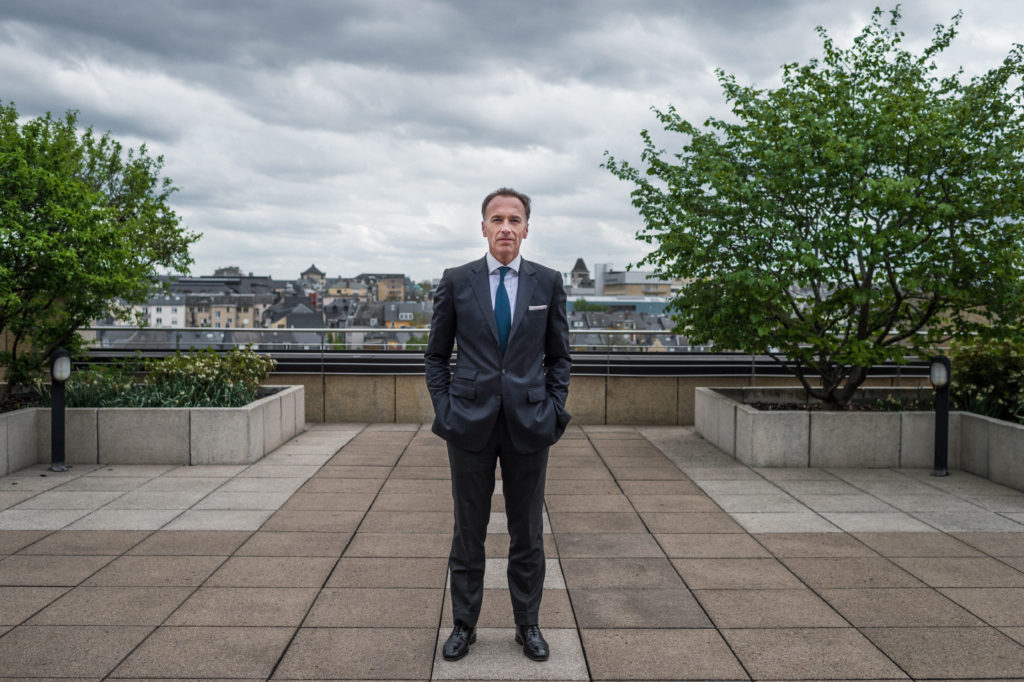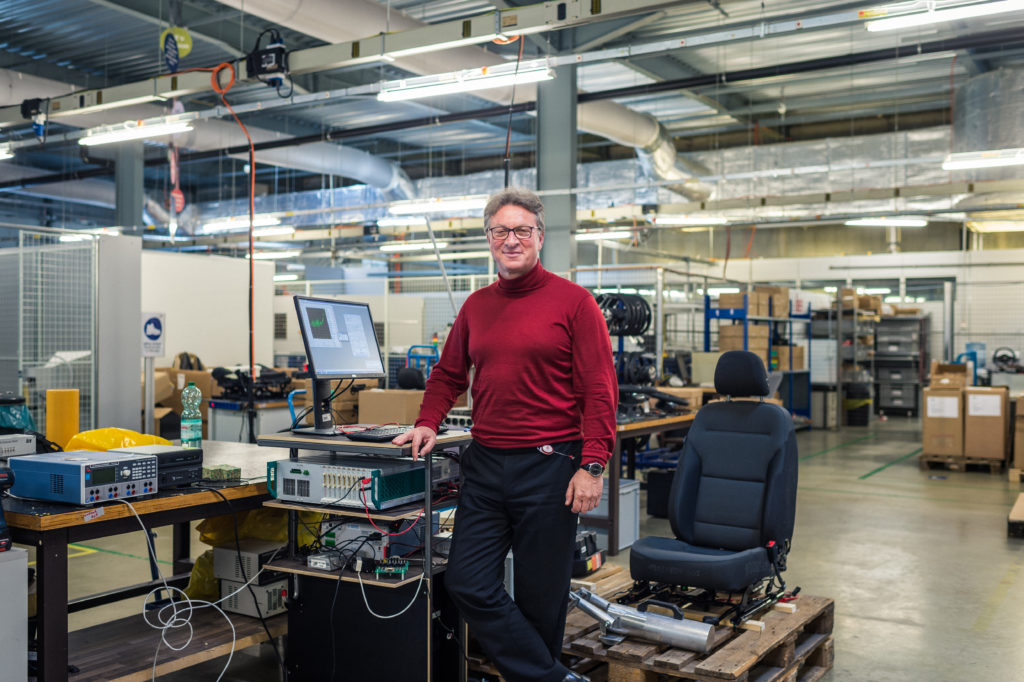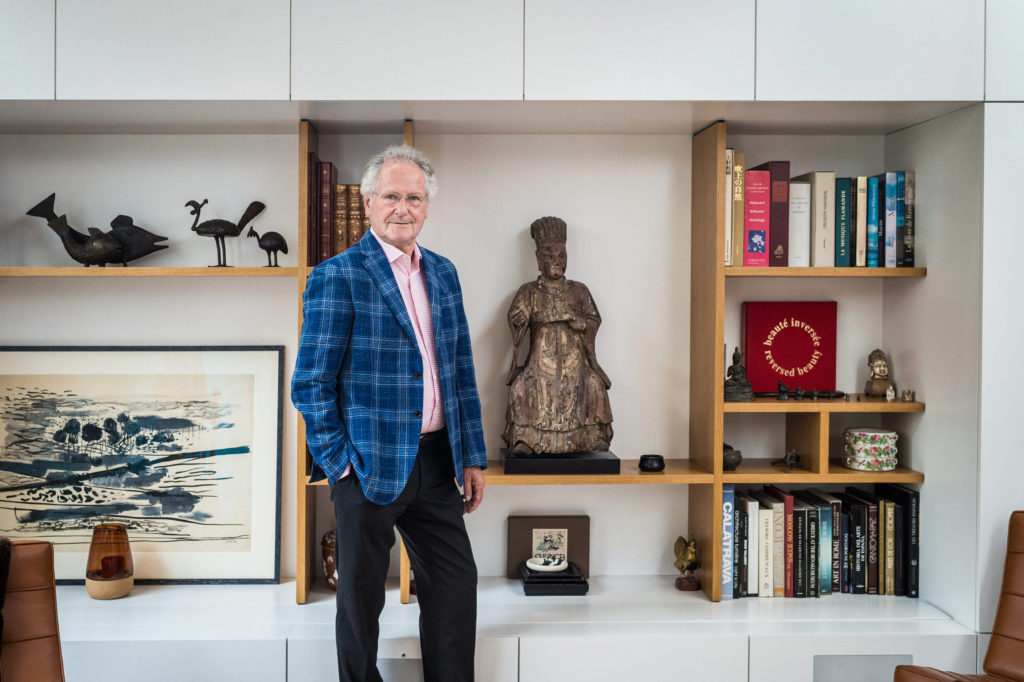LFF spoke to key decision makers from the worlds of banking, logistics and industry to undertand the appeal behind major Chinese investments into Luxembourg, and what the future might hold…
SWATHES OF POSSIBILITY
“Everyone asks what is the key success factor in Luxembourg? But there is not just one. ”Hugues Delcourt, tells us, fresh from penning his farewell note after five years at the helm as CEO of BIL, having overseen the integration of Legend Holdings as shareholder.
He elaborates: “We have a combination of structuring capabilities with investment skills which is unique. This doesn’t necessarily mean that success is guaranteed because it will be tough, and it is going to be competitive…but we have an opportunity and a unique combination of evidence to take forward. China is a big market and even if we only have a fraction of the market it is still important to take this forward.”

We are a Luxembourgish institution but are very proud of being owned by Legend Holdings.
While China offers vast possibilities, the potential to get lost while navigating it, is of a similar scale. Delcourt frames this vividly: “it’s like a big forest where, if you are not careful, you can’t find the exit any more. You have got to be very astute in what you want to do and how you do it over time.”

A BILATERAL LAUNCHPAD
Local knowledge of China and local knowledge of Luxembourg seems to be a winning formula for both these shareholders and their Luxembourgish companies. IEE, the producer of sensing solutions, was founded in Luxembourg in 1989 and welcomed HiWing Group as its owner in 2013. Michel Witte, President and CEO, believes that the Chinese like Luxembourg from the outset because “it does a lot to make it easy for them to enter [the market]; to find all the documents needed to establish and run a business. It’s very low profile, easy to fulfil and then you are in the Schengen area which is extremely helpful. This hub aspect makes sense, it becomes a launchpad for China to begin activities with other European countries.”

We’re creating an ecosystem around us to navigate the complex things that the world is asking for... so let’s join forces.
The location of Luxembourg as not only a founding member of the EU, but also providing access to the large Eurozone market that can be tapped into via passporting is a win for the Chinese in Delcourt’s view and is the “the root cause behind their decision. […] Luxembourg has been attractive and has marketed itself to Chinese banks, these banks are well represented here and are clients of BIL. It is a business-friendly environment and we get down to business.”

Michel Witte
Cargolux, the cargo airline, has had an international outlook since its inception. The global player in the field of logistics has previously had international share-holders. Its Chairman, Paul Helminger, draws parallels: “the Chinese have a similar strategic approach to our previous shareholders…they looked for a hub in Europe and at that time we were also looking for a reciprocal hub. Similarly, the Chinese were looking for a hub in Europe and we were quite happy to look at a hub in China.”
Having had an industrial partner, Cargolux went onto to establish a strategic relationship with their Chinese shareholder. They have a 35% share and Henan is a strategic objective as a province in the heart of China.
Helminger elaborates: “we have benefitted from a period of significant growth in the Chinese economy. That is a reality. We have really been building up substantial operations in Zhengzhou and in the peak season we now have 17 movements in and out the area per week which is considerable [….]. We are one of the very few non-Chinese carriers that have the right to do that. In China they are very satisfied with our performance and the cooperation is working well. […] The Cargolux link is really the one tangible link of the Air Silk Road…they are satisfied, we are satisfied so it has been a win win situation.”
CHAMPIONING INDIVIDUAL STRENGTHS
The striking factor behind these Chinese investments is the strong sense of individual identity and mutual respect. Delcourt highlights the role of Fudan (which is best explained in the motto by the University of the same name: “to learn extensively and adhere to aspirations, to inquire earnestly and reflect with self-application”) which is specific to Legend Holdings’ approach.

There is a culture of evaluating learnings to inform improvements.
He describes it as a methodology that the Chairman himself has developed as a philosophy within the Company, which is very much in line with what BIL has, but they have taken it to the next level. Immediately after an important project or decision is carried out, they stop, look back and talk openly and frankly to say what went well and what didn’t go well.
“There is a culture of evaluating learnings to inform improvements and although we have a lot to learn from one another, each is proud of its own culture, and proud of the ownership – building mutual respect, yet maintaining individuality as a partner. We are a national champion but are very proud of being owned by Legend Holdings.”

We see ourselves as one of those hidden champions because we still have a huge market share of a product which we have been controlling since 1996.
Buying into a commercial spirit is something Michel Witte understands well: “we see ourselves as one of those hidden champions because we still have a huge market share of a product which we have been controlling since 1996. We have saved a lot of lives with our [seatbelt safety and airbag sensor] technology and because people are buckling up. After more than 20 years in the market, we continue to control a very significant part of it.”
Witte highlights that their strategic Chinese investor was motivated by their ability to translate technologies into mass production,leading to an 100% Chinese ownership. It is difficult for them to get into this specific market, and we need strategic partners: “We’re creating an ecosystem around us to navigate the complex things that the world is asking for…so let’s join forces.” BIL, Cargolux and IEE are already attractive with their market spanning expertise, depth of knowledge and reputation, and these success stories are set to extract further value from their business development prospects. But what does the future hold?

Paul Helminger
A GLIMPSE INTO THE FUTURE
Luxembourg has long been a respected partner to China, dating back to the 1970s when it established diplomatic relations (with Paul Helminger in attendance) and the recent coverage of the Belt and Road Initiative demonstrates that this shows no sign of abating. Luxembourg’s first-ever direct freight train departed from the Grand Duchy’s logistics hub to Chengdu, capital of the blossoming Sichuan province in April this year.

Our economy is gradually climbing up the technology ladder, so the fact that we have good relations and that we need each other, is only going to become a more effective partnership in the future.
It’s not just logistics that are attractive. Hugues Delcourt offers an upbeat view from the banking sector, “our [Chinese] shareholders bring long-term commitment, access to capital, affinity to technology as well as networks and reputation in China. These are strong assets to have in your backpack to face the banking challenges of tomorrow.”
And there’s more to come. Paul Helminger sees these assets as having wider reaching implications such as technological innovation offering enormous value as a partner in the global economy: “Our economy is gradually climbing up the technology ladder, so the fact that we have good relations and that we need each other, is only going to become a more effective partnership in the future.”

